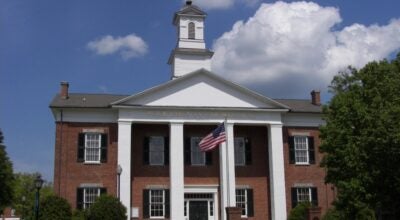Video gambling arrives in Polk amid statewide controversy
Published 1:59 pm Friday, January 8, 2010
Two new establishments offering video/cyber sweepstakes gaming machines have been set up in Polk County in the last month.
Whether these are legal under North Carolina gambling laws has been the subject of legislation, lawsuits and legal rulings over the last four years and is still unclear according to some experts.
The two businesses are the Carolina Thunder Coffee Shop on Route 108 between Columbus and Mill Spring and GW$ Game Room at the intersection of Routes 108 and 9 in Mill Spring.
The video sweepstakes machines that operated at an Internet caf in the Dunn’s Commons in Columbus were the first sign in Polk County of a significant statewide trend. That operation shut down abruptly recently.
The video sweepstakes machine operates under a similar principle as scratch-off games. The customer buys a telephone or Internet card. This same amount is his stake when he plays on the machine. This allows the industry to claim that nothing of value is actually bet the customer is buying a separate product altogether. The machine is programmed for payouts in much the same way as other scratch-offs are done a pre-determined set of payouts are available to gamblers and the players see simulated games.
The legal questions around this are complex and involve federal as well as state regulations. The gaming industry has been aggressive in defending itself from regulation and restriction.
When video poker was banned the industry replaced the machines with the video sweepstakes machines. In 2006 and 2008, North Carolina moved to ban video gambling operations and in each case has been thwarted by modifications in the way the machines operated.
They have been sued in separate cases on the grounds that the state could not restrict gambling while allowing the same type of machines on the Cherokee Indian Reservation and also that the gaming machines did not operate as described in the legislation.
On December 22, 2009, in the latest ruling on whether the state could restrict gambling, which it allowed on the Indian Reservation, the State Appeals Court ruled that it could. This overturned a lower court ruling.
With respect to whether the machines violate the 2008 anti-video gambling law, the most recent ruling states that they are not covered by that laws specific description of such an operation. The judge in this case issued an injunction against any law enforcement agencies in the state taking any action against the operators.
However, some counties and municipalities have seen much more activity than Polk County and have decided to take action to limit such establishments. For example, where there are zoning regulations they often can be used to prevent standalone operations. Asheville is eliminating several shops but has found that it cannot ban the use of a few machines at another business, such as gas stations. Zoning is based on the primary use of the facility.
Cathy Ruth, the Polk County Planner, said that her department is investigating the Carolina Thunder Coffee Shop because a citizen has filed a complaint. Ruth indicated that the area where it is located is covered by zoning regulations which apply to the primary business at the site. No permit was applied for, either for the new business operation or for the sign that is erected outside the building. If the business is primarily a coffee shop it would be legitimate once a permit application is made and approved.
The GW$ Game Room in Mill Spring is outside the jurisdiction of zoning and therefore its operations would not be impacted, according to Ruth.
Some municipalities have taken the approach of levying taxes or license fees on the businesses. In October, the City of Hendersonville adopted such a fee. These are typically around $2,500 per year on the first four machines and $700 per machine above that.
However, only municipalities (Columbus, Saluda and Tryon in Polk) may levy such a privilege license fee under current law.
In 2009, a North Carolina legislator unsuccessfully attempted to pass a state tax on the gaming operations that could have brought in up to $500 million per year.





